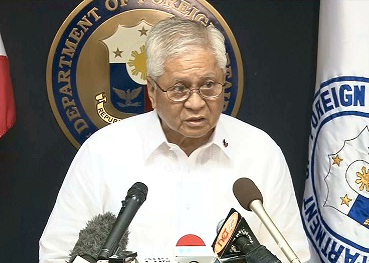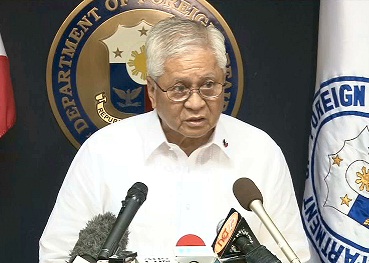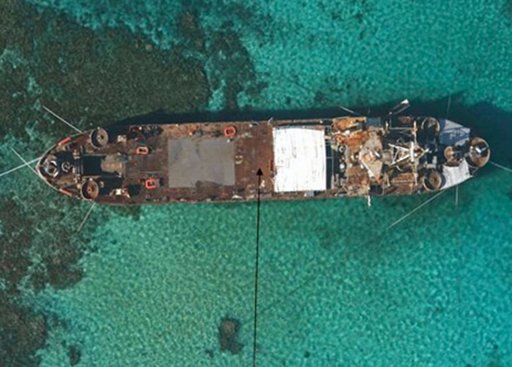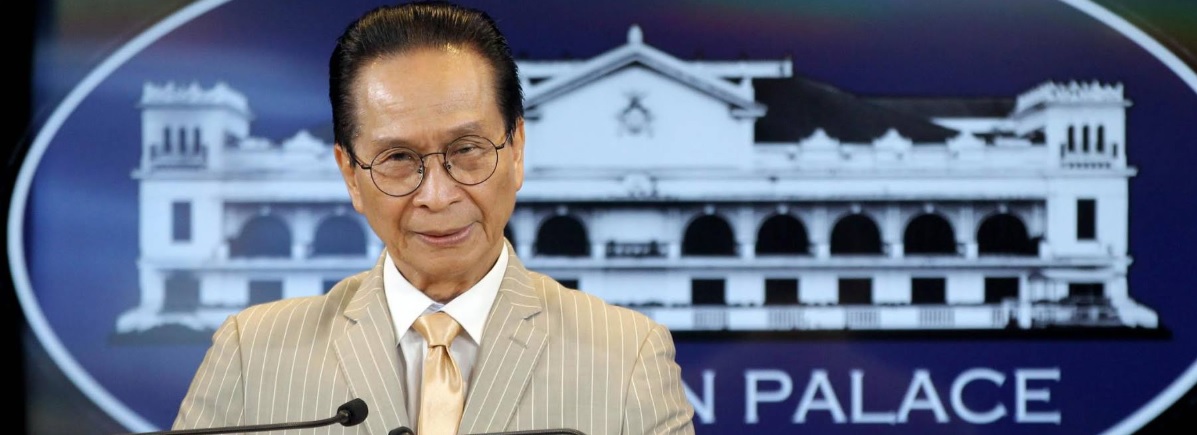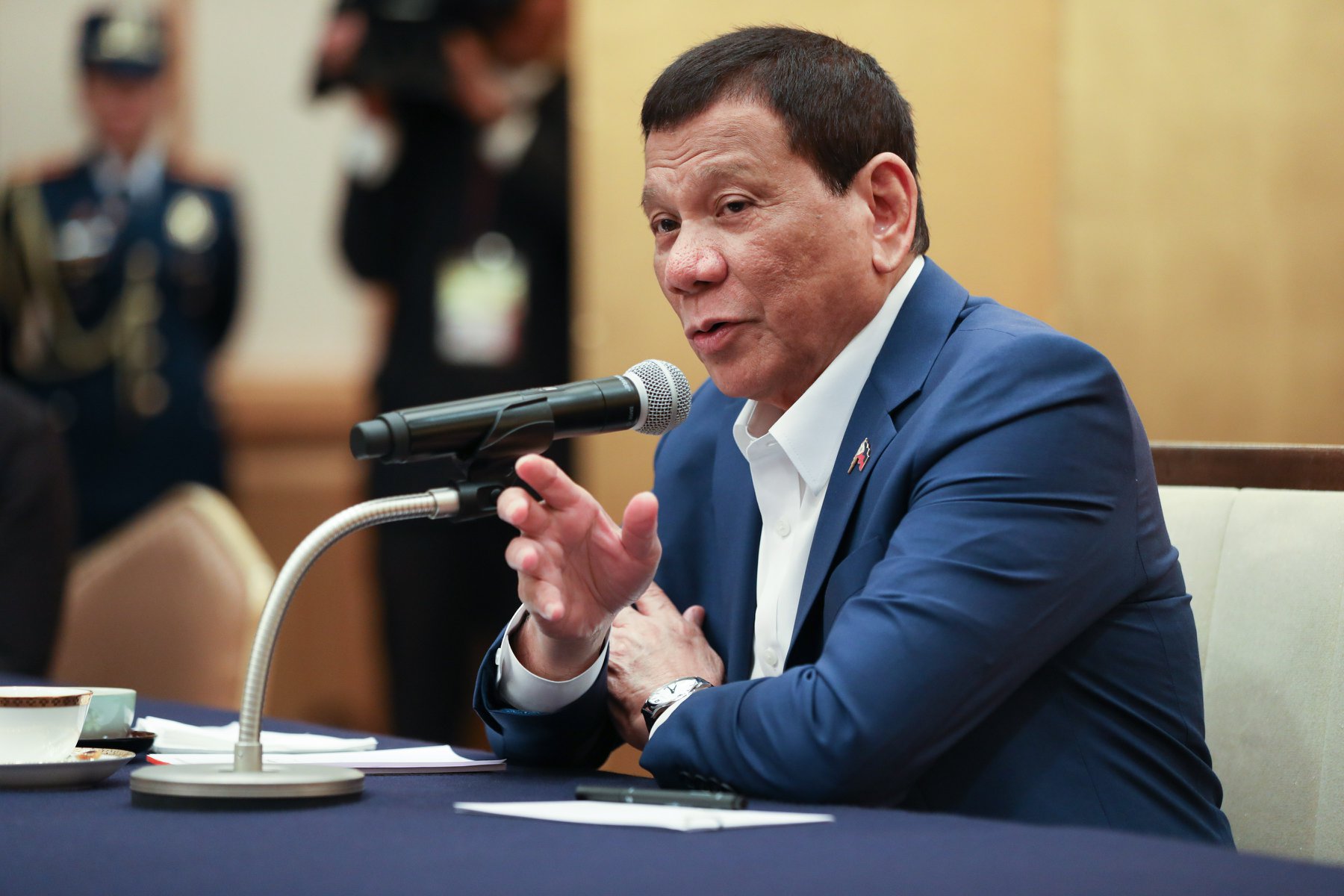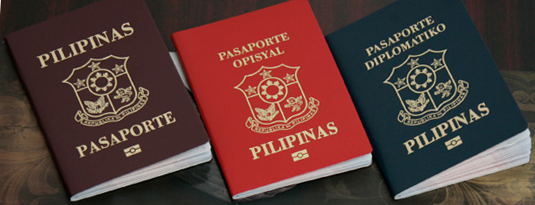THE day after U.S. President Barack Obama left Manila, Foreign Secretary Albert Del Rosario issued the following statement:
“Under the Mutual Defense Treaty, the United States will come to the assistance of the Philippines if our metropolitan territory is attacked or if our Armed Forces are attacked in the Pacific area.
“In 1999, in a diplomatic letter, the United States affirmed that the South China Sea is considered as part of the Pacific area.”
Del Rosario is pathetic. What is abhorrent about this is, he is resorting to disinformation. Either that or his geography is faulty: The Spratlys, the contested islands in the South China Sea, are not in the Pacific.
Lawyer Harry Roque said “Geography can’t be changed by Del Rosario. MDT says ‘Metropolitan territory’ and islands in the Pacific. Spratlys are not in the Pacific.”
Roque further said: “MDT mandates the United Sates to come to our assistance when our territory is attacked. But since the U.S. does not recognize our title over Spratlys, a Chinese attack there will not trigger application of MDT.”
Roque said Obama was clear in all his statements while visiting Manila that US interest is freedom of navigation and peaceful settlement of dispute.
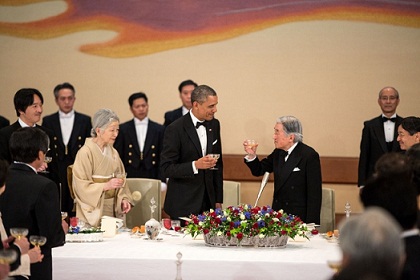 In Japan, his first stop in the April 2014 Asia visit, Obama was very clear about the application of U.S. –Japan MDT in case of an armed conflict over Senkaku island, which the Chinese calls Diaoyu:“The policy of the United States is clear – the Senkaku islands are administered by Japan and therefore fall within the scope of … the U.S.-Japan Treaty of Mutual Cooperation and Security.”
In Japan, his first stop in the April 2014 Asia visit, Obama was very clear about the application of U.S. –Japan MDT in case of an armed conflict over Senkaku island, which the Chinese calls Diaoyu:“The policy of the United States is clear – the Senkaku islands are administered by Japan and therefore fall within the scope of … the U.S.-Japan Treaty of Mutual Cooperation and Security.”
Contrast that to what he said during the press conference in Malacanang last Monday: “Our goal is not to counter China; our goal is not to contain China. Our goal is to make sure that international rules and norms are respected, and that includes in the area of maritime disputes. We do not have claims in this area territorially. We are an Asia Pacific nation and our primary interest is the peaceful resolution of conflict, freedom of navigation that allows for continued progress and prosperity. And we don’t even take a specific position on the disputes between nations.”
Del Rosario must be clutching on what Obama said before war veterans and servicemen on the last day of his visit where he spoke about the 1951 PH-US Mutual Defense Treaty. Obama quoted a line in MDT which says, “common determination to defend themselves against external armed attacks, so that no potential aggressor could be under the illusion that either of them stands alone.”
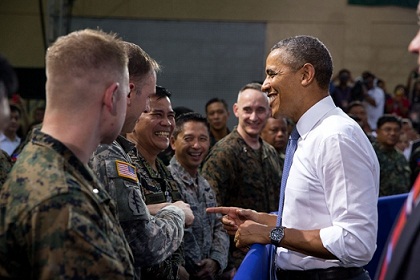 ” In other words, our commitment to defend the Philippines is ironclad and the United States will keep that commitment, because allies never stand alone,” Obama declared to a vigorous applause.
” In other words, our commitment to defend the Philippines is ironclad and the United States will keep that commitment, because allies never stand alone,” Obama declared to a vigorous applause.
In his post-Obama visit statement, Del Rosario mentioned a 1999 diplomatic letter. He was referring to the letter of then U.S. Ambassador Thomas who said that “the South China Sea is part of the Pacific area.”
What Del Rosario didn’t say, and I’m presuming that he knows this as foreign secretary (otherwise it’s a tragedy) is that the phrase “Metropolitan Territory” excludes islands, rocks and reefs that are in dispute since these were not part of the Philippine territory that the U.S .administered when it granted independence to the Philippines on July 4, 1946.
An encounter between Philippine and Chinese forces in the Philippine-occupied Pagasa island will not make Obama order the soldiers stationed in U.S. facilities in Fort Magsaysay or in other military camps in the country under the newly-signed Enhanced Defense Cooperation Agreement to join the shooting war.
Now, what if the “Armed Forces of the Philippines” in the Pacific Area are attacked?
An expert in the South China Sea, who asked not to be named, explained that “’Armed Forces of the Philippines’ that are outside the metropolitan territory refer to ‘public vessels or aircraft’ of the AFP. If China attacks BRP Alcaraz in the West Philippine Sea, then the US is bound by treaty to defend BRP Alcaraz, but not the Philippine soldiers stationed in Pagasa.”
Former Ambassador to the United Nations Lauro Baja, Jr. also noted that the U.S recognizes that the Senkaku islands have been under Japan’s administration while it always says that it takes no position in the conflicts in the South China Sea. “Hence the difference in language,” he said.
He advised Del Rosario to “ just accept the ironclad commitment by President Obama.”
EDCA, he said “ is at best an instrument of hope and I hope it sends the strategic message to China. “
Del Rosario should heed this advice from the veteran diplomat: “Let’s not dilute this expectation by unnecessary talks.”
